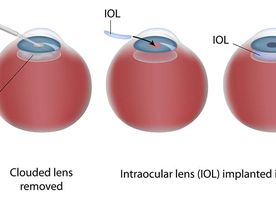USD - US Dollar
EUR - Euro
GBP - British Pound
AED - Arab Emirates Dirham
AUD - Australian Dollar
BRL - Brazilian Real
CAD - Canadian Dollar
CHF - Swiss Franc
CNY - Chinese Yuan
CZK - Czech Koruna
DKK - Danish Krone
HKD - Hong Kong Dollar
HUF - Hungarian Forint
IDR - Indonesian rupiah
ILS - New Israeli Sheqel
INR - Indian Rupee
JPY - Japanese Yen
KRW - South Korean Won
MXN - Mexican Peso
MYR - Malaysian Ringgit
NOK - Norwegian Krone
NZD - New Zealand Dollar
RUB - Russian Ruble
SEK - Swedish Krona
PHP - Philippine Peso
PLN - Polish Zloty
SGD - Singapore Dollar
THB - Thai Baht
TRY - Turkish Lira
TWD - Taiwan Dollar
VND - Vietnamese Dong
ZAR - South African Rand
Country
Thailand
Philippines
Vietnam
United Arab Emirates
Malaysia
Singapore
India
Germany
Austria
Belgium
Brazil
Costa Rica
Croatia
Cyprus
Czech Republic
Egypt
France
Greece
Hong Kong
Hungary
Israel
Italy
Japan
Jordan
Lebanon
Lithuania
Mexico
Morocco
Poland
Romania
Russian Federation
South Africa
South Korea
Spain
Switzerland
Taiwan
Tunisia
Turkey
Ukraine
United Kingdom
Colombia
United States
Argentina
Region
Specialties
Internal Medicine
Psychiatry
Psychology
Anesthetics
Ophthalmology
Orthopedics
Colorectal Medicine
Ear, Nose and Throat (ENT)
Gastroenterology
Accident and Emergency Medicine
Neurology
Diagnostic Imaging
Pediatrics
Dentistry
Dermatology
Sleep Medicine
Plastic and Cosmetic Surgery
Yoga Therapy
Tropical medicine
Maxillofacial Surgery
Physical Medicine and Rehabilitation
Allergology
General Surgery
Nephrology
Cardiology
Gynecology
Immunology
Dentistry Packages
Hair Restoration
Regenerative Medicine
Vascular Medicine
Bariatric Surgery
Spinal Surgery
Cosmetology
Reproductive Medicine
Oncology
Neurosurgery
Pulmonary and Respiratory Medicine
Laboratory Medicine
Infectious Diseases
Drug Rehabilitation
Rheumatology
Urology
Endocrinology
Podiatric Medicine
General Medicine
Procedures
Anti-VEGF Therapy
Xanthelasma Removal
Tear Duct Surgery
Small Incision Lenticule Extraction (SMILE)
Pinguecula Treatment
Optical Coherence Tomography (OCT)
Fluorescein Angiogram
Eye Implant
Eye Cancer Treatment
Exophthalmos Treatment
Enucleation of the Eye
Entropion/Ectropion Eyelid Repair
Diabetic Retinopathy Treatment
Corneal Cross-linking (CXL)
Chalazion Treatment
Age-Related Macular Degeneration (AMD) Treatment
Retinitis Pigmentosa Treatment
Iris Repair Surgery
Pterygium Surgery
Eye Examination
Detached Retina Treatment
Presbyopia Treatment
Photorefractive Keratectomy (PRK)
Ophthalmology Consultation
Laser Eye Surgery (LASEK)
Implantable Contact Lens (ICL)
Glaucoma Treatment
Laser Eye Surgery (LASIK)
Cataract Surgery
Eye Surgery
Cornea Transplant
Intraocular Lens (IOL) Implant
Vitrectomy
Macular Hole Surgery
Intracorneal Ring Segment (ICRS) Implantation
Refractive Eye Surgery
Strabismus Treatment
Intravitreal Injection
FREE QUOTE
Already know what you want?

GET FREE QUOTE
Ophthalmology Consultation in Thailand
Search and Compare the Best Clinics and Doctors at the Lowest Prices for Ophthalmology Consultation in Thailand
Laser Vision International LASIK Center
Price on request
Ophthalmology Consultation





Recommended
4.8
22 reviews
Ophthalmology Consultation at Laser Vision International LASIK Center in Bangkok, Thailand
LASER VISION International LASIK Center was established in 1998 - this private refractive surgery center specialises in treatment of refractive error problems, including nearsightedness, farsightedness and astigmatism. They guaran...more
The staff at Laser Vision International were incredibly supportive. The treatment was effective, and I felt cared for every step of the way....
English
Thai
ISO 9001:2008
Chiangmai Ram Hospital
Price on request
Ophthalmology Consultation





4.9
8 reviews
Ophthalmology Consultation at Chiangmai Ram Hospital in Chiang Mai, Thailand
Chiangmai Ram Hospital is a premier healthcare institution located in Amphoe Mueang Chiang Mai, Thailand. Renowned for its comprehensive range of medical services, the hospital specializes in various fields including Gastroenterol...more
Excellent service! The chest x-ray was done quickly, and the results were explained to me in detail. Very satisfied....
English
Thai
JCI Accredited
ISO 9001:2008
Bumrungrad International Hospital
Price on request
Ophthalmology Consultation





3.5
381 reviews
Ophthalmology Consultation at Bumrungrad International Hospital in Bangkok, Thailand
Bumrungrad International Hospital is located in the center of Bangkok and Bumrungrad means ‘to care for the populace’ or ‘to nurture the people.’ It is known as a “one-stop” center for medical s...more
I understand why this hospital is considered the best in Thailand. Traveled all the way from Australia to get my treatment here after I heard good things about ...
Arabic
English
French
German
Italian
JCI Accredited
Hospital Accreditation of Thailand
Samitivej Thonburi Hospital
Price on request
Ophthalmology Consultation





3.4
59 reviews
Ophthalmology Consultation at Samitivej Thonburi Hospital in Bangkok, Thailand
Samitivej Thonburi Hospital is a premier healthcare facility located in the vibrant district of Samre, Thon Buri. Renowned for its comprehensive medical services, the hospital offers a wide range of treatments including gastroscop...more
From consultation to post-op care, everything was seamless. The surgeons are highly skilled, and the nursing staff is attentive and caring. A truly positive exp...
English
Thai
JCI Accredited
Hospital Accreditation of Thailand
Showing 1-4 of 4 listings.
Home
Thailand
Ophthalmology Consultation clinics in Thailand
No pricing info available
Overview
Prices start from:
No pricing info available in Thailand
No. of clinics available in Thailand:
4
Recovery time:
Recovery time varies
Surgery:
Yes
Payment:
Pay at the clinic
Similar procedures:
Why Book with MyMediTravel?
Save Time
We 'll contact all your preferred clinics for you, saving you hours
Best Price
Our extensive network of doctors and clinics has you covered
Free
Our service is completely free
Risk Free
No deposits, no worries
Service
Comprehensive aftercare, including follow-up consultations and support
Privacy
Your personal infomation is safe with us
How it works
Browse
Search for a clinic, hospital or doctor
Enquire
Submit your enquiry along with photos/medical records etc
Wait
Allow a few days for your personalised quotes
Decide
Pick your preferred option or don't chose any, there's no obligation
Go
If you're happy, get your flights booked and go!
Aftercare
We'll check in with you to make sure you're doing great after your treatment
Our partner clinics in are accredited by the following associations

JCI Accredited

Hospital Accreditation of Thailand

ISO 9001:2008

Dental Association of Thailand

ISO Certification - International Organization for Standardization

TÜV Rheinland - Technischer Überwachungsverein Rheinland

ESQH - European Society for Quality in Healthcare

ISQua - The International Society for Quality in Health Care

CHKS Healthcare Accreditation

The Leading Dental Centers of The World

Nobel Biocare Fellowship Program

Zimmer Biomet Dental Education Program

EVF - European Venous Forum

EFQM - European Foundation for Quality Management

IDA - International Dental Academy

ICA - International Chiropractors Association

MCA - McTimoney Chiropractic Association

UCA - United Chiropractic Association

ICS - International College of Surgeons

IACD - International Academy of Cosmetic Dermatology

ISDS - International Society for Dermatologic Surgery

EBOPRAS - European Board of Plastic Reconstructive and Aesthetic Surgery

IAAFA - International Academy of Advanced Facial Aesthetics

WALT - World Association for Laser Therapy

ISHRS - International Society of Hair Restoration Surgery

AAHRS - Asian Association of Hair Restoration Surgeons

ESCAD - European Society for Cosmetic and Aesthetic Dermatology

William Glasser Institute - Reality Therapy Certified

EAC - European Association for Counselling

IFSO - International Federation for the Surgery of Obesity and Metabolic Disorde

TÜV SÜD - Technischer Überwachungsverein SÜD

TÜV NORD - Technischer Überwachungsverein NORD

BIOMET 3i Education Program

EURAPS - European Association of Plastic Surgeons

Center of Excellence in Bariatric Surgery

IAOMS - International Association of Oral and Maxillofacial Surgeons

Treatment Abroad Code of Practice

IFFPSS - International Federation of Facial Plastic Surgery Societies

FIGO - International Federation of Gynecology and Obstetrics

IFED - International Federation of Esthetic Dentistry

EOS - European Orthodontic Society

AOCMF

IBMS - International Board of Medicine and Surgery

EAFPS - European Academy of Facial Plastic Surgery

ESCD - European Society of Cosmetic Dentistry

ESCRS - European Society of Cataract and Refractive Surgeons

NASS - North American Spine Society

ESHRE - European Society of Human Reproduction and Embryology

MPS - Medical Protection Society

European Journal of Ophthalmology

ISRS - International Society of Refractive Surgery

JCRS - Journal of Cataract and Refractive Surgery

Cornea Society

JPGM - Journal of Postgraduate Medicine

ESPRAS - European Society of Plastic, Reconstructive and Aesthetic Surgery

OSAPS - Oriental Society of Aesthetic Plastic Surgery

RS - The Rhinoplasty Society

FRANZCOG - Fellow of Royal Australian and New Zealand College of Obstetricians a

IFOMPT - International Federation of Orthopaedic Manipulative Physical Therapist

WFO - World Federation of Orthodontists

ITI - International Team for Implantology

ICOI - International Congress of Oral Implantologists

Dentsply Friadent Implant Programme

IMTEC Sendax Mini Dental Implants Systems

IAO - International Association for Orthodontics

AAO - Asian Academy of Osseointegration

WAAAM - World Anti-Aging Academy of Medicine

WOSIAM - World Society Interdisciplinary Anti-Aging Medicine

ESE - European Society of Endodontology

ECAMS - European College of Aesthetic Medicine and Surgery

IABCLL - International Academy of Body Contouring and Laser Lipolysis

IAFGG - International Association of Facial Growth Guidance

IBCS - International Board of Cosmetic Surgery

IMDHA - International Medical and Dental Hypnotherapy Association

EAO - European Association for Osseointegration

ISD - International Society of Dermatology

IFAD - International Federation of Aesthetic Dentistry

IBHRS - International Board of Hair Restoration Specialists

IAHRS - International Alliance of Hair Restoration Surgeons

EDA - European Dental Association

IASP - International Association for the Study of Pain

ADI - Academy of Dentistry International

EAPD - European Academy of Paediatric Dentistry

EACMD - European Academy of Craniomandibular Disorders

ESHRS - European Society of Hair Restoration Surgery

ICD - International College of Dentists Fellowship

UIME - International Union of Aesthetic Medicine

APACS - Asian Pacific Academy of Cosmetic Surgery

McKenzie Institute International

ITEC - International Therapy Examination Council

ICA - International Cranial Association

I-ACT - International Association for Colon Hydrotherapy

CIBTAC - Confederation of International Beauty Therapy and Cosmetology

IFPA - International Federation of Professional Aromatherapists

ISBI - International Society for Burn Injuries

The Pankey Institute

PEFOTS - Pan European Federation of TCM Societies

URHP - Unified Register of Herbal Practitioners

AACD - Asian Academy of Craniomandibular Disorders

IMSA - The International Medical Spa Association

ACHSI - The Australian Council on Healthcare Standards International

CIDESCO - Comité International d'Esthétique et de Cosmétologie

ART - Active Release Techniques

ICPA - International Chiropractic Pediatric Association

CDA - Caribbean Dermatology Association

APAO - Asia Pacific Academy of Ophthalmology

FICCDE - International College of Continuing Dental Education Fellowship

GMC - General Medical Council

ISA - International Sleep Academy

ISCG - International Society of Cosmetogynecology

EPA - European Prosthodontic Association

ABSI - Advanced Body Sculpting Institute

EACMFS - European Association for Cranio-Maxillo-Facial Surgery

FILACP - Federación Ibero Latinoamericana de Cirugía Plástica

REDLARA - Rede Latino-americana de Reprodução Assistida

ALMER - Asociación Latinoamericana de Medicina Reproductiva

ICP - International College of Prosthodontists

EFP - European Federation of Periodontology

IADR - International Association for Dental Research

IODPT - International Organization for Dental Phobia Treatment

Academy of Operative Dentistry

The Dawson Academy

AAP - Asian Academy of Prosthodontics

AsianAOMS - Asian Association of Oral and Maxillofacial Surgeons

ISCD - International Society of Computerized Dentistry - Certified CEREC Trainer

SAAD - Society for the Advancement of Anaesthesia in Dentistry

PFA - Pierre Fauchard Academy

ISCD - International Society of Computerized Dentistry

YDW - Young Dentists Worldwide

APAD - Asia Pacific Academy of Dentistry

ACDNA - Academy Of Computerized Dentistry Of North America

WSLO - World Society of Lingual Orthodontics

HA - Institute of Hospital Quality Improvement and Accreditation

The Dental Council of Thailand

The Dental Association of Thailand

Thai Prosthodontics Association

Thai Society for Laser Dentistry

Medical Council of Thailand

Royal College of Surgeons of Thailand

ISO 9001 : 2015
No Time?
Tell us what you're looking for and we'll reach out to the top clinics all at once
Please enter a valid procedure
WHY US?
At MyMediTravel, we're making medical easy.
You can search, compare, discuss, and book your medical all in one place.
We open the door to the best medical providers worldwide, saving you time and energy along the way, and it's all for FREE, no hidden fees, and no price markups guaranteed.
So what are you waiting for?
MyMediTravel Patient Reviews
See what our customers say about their experiences
Martina, 25 Jul 2024
The eye exam was very thorough, and the staff made me feel comfortable throughout the process.
Aniyah, 12 May 2024
The doctors at this clinic are incredibly knowledgeable and compassionate. My treatment went smoothly, and I felt well cared for throughout the process.
Sarah , 23 Jul 2024
The staff at Laser Vision International were incredibly supportive. The treatment was effective, and I felt cared for every step of the way.
Shamsuddin Yan, 15 Jan 2024
Excellent eye hospital! The charges are more reasonable compared to other hospitals I researched. Even though there were a few foreigners, they provided good service and delivered incredible outcomes.
Our partner clinics in are accredited by the following associations

JCI Accredited

Hospital Accreditation of Thailand

ISO 9001:2008

Dental Association of Thailand

ISO Certification - International Organization for Standardization

TÜV Rheinland - Technischer Überwachungsverein Rheinland

ESQH - European Society for Quality in Healthcare

ISQua - The International Society for Quality in Health Care

CHKS Healthcare Accreditation

The Leading Dental Centers of The World

Nobel Biocare Fellowship Program

Zimmer Biomet Dental Education Program

EVF - European Venous Forum

EFQM - European Foundation for Quality Management

IDA - International Dental Academy

ICA - International Chiropractors Association

MCA - McTimoney Chiropractic Association

UCA - United Chiropractic Association

ICS - International College of Surgeons

IACD - International Academy of Cosmetic Dermatology

ISDS - International Society for Dermatologic Surgery

EBOPRAS - European Board of Plastic Reconstructive and Aesthetic Surgery

IAAFA - International Academy of Advanced Facial Aesthetics

WALT - World Association for Laser Therapy

ISHRS - International Society of Hair Restoration Surgery

AAHRS - Asian Association of Hair Restoration Surgeons

ESCAD - European Society for Cosmetic and Aesthetic Dermatology

William Glasser Institute - Reality Therapy Certified

EAC - European Association for Counselling

IFSO - International Federation for the Surgery of Obesity and Metabolic Disorde

TÜV SÜD - Technischer Überwachungsverein SÜD

TÜV NORD - Technischer Überwachungsverein NORD

BIOMET 3i Education Program

EURAPS - European Association of Plastic Surgeons

Center of Excellence in Bariatric Surgery

IAOMS - International Association of Oral and Maxillofacial Surgeons

Treatment Abroad Code of Practice

IFFPSS - International Federation of Facial Plastic Surgery Societies

FIGO - International Federation of Gynecology and Obstetrics

IFED - International Federation of Esthetic Dentistry

EOS - European Orthodontic Society

AOCMF

IBMS - International Board of Medicine and Surgery

EAFPS - European Academy of Facial Plastic Surgery

ESCD - European Society of Cosmetic Dentistry

ESCRS - European Society of Cataract and Refractive Surgeons

NASS - North American Spine Society

ESHRE - European Society of Human Reproduction and Embryology

MPS - Medical Protection Society

European Journal of Ophthalmology

ISRS - International Society of Refractive Surgery

JCRS - Journal of Cataract and Refractive Surgery

Cornea Society

JPGM - Journal of Postgraduate Medicine

ESPRAS - European Society of Plastic, Reconstructive and Aesthetic Surgery

OSAPS - Oriental Society of Aesthetic Plastic Surgery

RS - The Rhinoplasty Society

FRANZCOG - Fellow of Royal Australian and New Zealand College of Obstetricians a

IFOMPT - International Federation of Orthopaedic Manipulative Physical Therapist

WFO - World Federation of Orthodontists

ITI - International Team for Implantology

ICOI - International Congress of Oral Implantologists

Dentsply Friadent Implant Programme

IMTEC Sendax Mini Dental Implants Systems

IAO - International Association for Orthodontics

AAO - Asian Academy of Osseointegration

WAAAM - World Anti-Aging Academy of Medicine

WOSIAM - World Society Interdisciplinary Anti-Aging Medicine

ESE - European Society of Endodontology

ECAMS - European College of Aesthetic Medicine and Surgery

IABCLL - International Academy of Body Contouring and Laser Lipolysis

IAFGG - International Association of Facial Growth Guidance

IBCS - International Board of Cosmetic Surgery

IMDHA - International Medical and Dental Hypnotherapy Association

EAO - European Association for Osseointegration

ISD - International Society of Dermatology

IFAD - International Federation of Aesthetic Dentistry

IBHRS - International Board of Hair Restoration Specialists

IAHRS - International Alliance of Hair Restoration Surgeons

EDA - European Dental Association

IASP - International Association for the Study of Pain

ADI - Academy of Dentistry International

EAPD - European Academy of Paediatric Dentistry

EACMD - European Academy of Craniomandibular Disorders

ESHRS - European Society of Hair Restoration Surgery

ICD - International College of Dentists Fellowship

UIME - International Union of Aesthetic Medicine

APACS - Asian Pacific Academy of Cosmetic Surgery

McKenzie Institute International

ITEC - International Therapy Examination Council

ICA - International Cranial Association

I-ACT - International Association for Colon Hydrotherapy

CIBTAC - Confederation of International Beauty Therapy and Cosmetology

IFPA - International Federation of Professional Aromatherapists

ISBI - International Society for Burn Injuries

The Pankey Institute

PEFOTS - Pan European Federation of TCM Societies

URHP - Unified Register of Herbal Practitioners

AACD - Asian Academy of Craniomandibular Disorders

IMSA - The International Medical Spa Association

ACHSI - The Australian Council on Healthcare Standards International

CIDESCO - Comité International d'Esthétique et de Cosmétologie

ART - Active Release Techniques

ICPA - International Chiropractic Pediatric Association

CDA - Caribbean Dermatology Association

APAO - Asia Pacific Academy of Ophthalmology

FICCDE - International College of Continuing Dental Education Fellowship

GMC - General Medical Council

ISA - International Sleep Academy

ISCG - International Society of Cosmetogynecology

EPA - European Prosthodontic Association

ABSI - Advanced Body Sculpting Institute

EACMFS - European Association for Cranio-Maxillo-Facial Surgery

FILACP - Federación Ibero Latinoamericana de Cirugía Plástica

REDLARA - Rede Latino-americana de Reprodução Assistida

ALMER - Asociación Latinoamericana de Medicina Reproductiva

ICP - International College of Prosthodontists

EFP - European Federation of Periodontology

IADR - International Association for Dental Research

IODPT - International Organization for Dental Phobia Treatment

Academy of Operative Dentistry

The Dawson Academy

AAP - Asian Academy of Prosthodontics

AsianAOMS - Asian Association of Oral and Maxillofacial Surgeons

ISCD - International Society of Computerized Dentistry - Certified CEREC Trainer

SAAD - Society for the Advancement of Anaesthesia in Dentistry

PFA - Pierre Fauchard Academy

ISCD - International Society of Computerized Dentistry

YDW - Young Dentists Worldwide

APAD - Asia Pacific Academy of Dentistry

ACDNA - Academy Of Computerized Dentistry Of North America

WSLO - World Society of Lingual Orthodontics

HA - Institute of Hospital Quality Improvement and Accreditation

The Dental Council of Thailand

The Dental Association of Thailand

Thai Prosthodontics Association

Thai Society for Laser Dentistry

Medical Council of Thailand

Royal College of Surgeons of Thailand

ISO 9001 : 2015
No Time?
Tell us what you're looking for and we'll reach out to the top clinics all at once
Please enter a valid procedure
WHY US?
At MyMediTravel, we're making medical easy.
You can search, compare, discuss, and book your medical all in one place.
We open the door to the best medical providers worldwide, saving you time and energy along the way, and it's all for FREE, no hidden fees, and no price markups guaranteed.
So what are you waiting for?
Popular Procedures in Thailand
Price on Request

Age-Related Macular Degeneration (AMD) Treatment
Price on Request
See prices & compare results
Price on Request

Intracorneal Ring Segment (ICRS) Implantation
Price on Request
See prices & compare results
Prices Start From $2,362

Intraocular Lens (IOL) Implant
Prices Start From $2,362
See prices & compare results
Prices Start From $1,359

Laser Eye Surgery (LASIK)
Prices Start From $1,359
See prices & compare results
Prices Start From $1,359

Photorefractive Keratectomy (PRK)
Prices Start From $1,359
See prices & compare results
Prices Start From $4,724

Refractive Eye Surgery
Prices Start From $4,724
See prices & compare results
What you need to know about Ophthalmology Consultation in Thailand
Ophthalmology Consultation is a medical procedure / surgery that requires coordination between specialist surgeons, anaesthetists and various other specialist medical professionals. This type of Ophthalmology procedure / treatment can be considered reasonably expensive, especially given the skill set, experience, training and equipment used by the specialists involved. For Ophthalmology Consultation, medical records, reports or any supporting documents may be required for the specialist to assess prior to the treatment. As with any major surgery, recovery can vary according to the individual. Your immediate recovery can be affected by various factors like the sedation (anesthetic) type and how long you're sedated for, but you should expect to spend some time recovering in the ward before being discharged. Then you should expect to rest for a few more days before you begin to commence light activity again - remember, Ophthalmology Consultation is a major surgery and your body needs time to recover. As for aftercare, it's crucial that you follow the surgeon's advice and adhere to the prescribed medication plan. You'll also be advised about diet, how to care for and treat the wounds and how to recognize possible signs of infection.
It's likely you'll be advised by the medical team to stay in Thailand for up to two weeks after your surgery, this will allow for enough time for your wounds to heal and have stitches removed, if required. The surgeon will expect to see you for at least one or two post-op consultations before giving the all clear to travel home again. The success rate for Ophthalmology Consultation in Thailand is now extremely high given the recent advances in medical technology and surgeon experience. However, with any surgery, there is always the possibility of complications, such as infection, bleeding, numbness, swelling and scar tissue. But if you rest post-op and follow the surgeon's recovery advice, you can expect to reduce these odds close to zero.
This information has been accurately sourced and verified by a medical professional for its accuracy, however, we strongly recommend you to consult with your doctor before pursuing medical procedures overseas.
Update: 19/02/2023
QUICK LINKS
COMPANY
531A Upper Cross Street, #04-95 Hong Lim Complex, Singapore 051531




